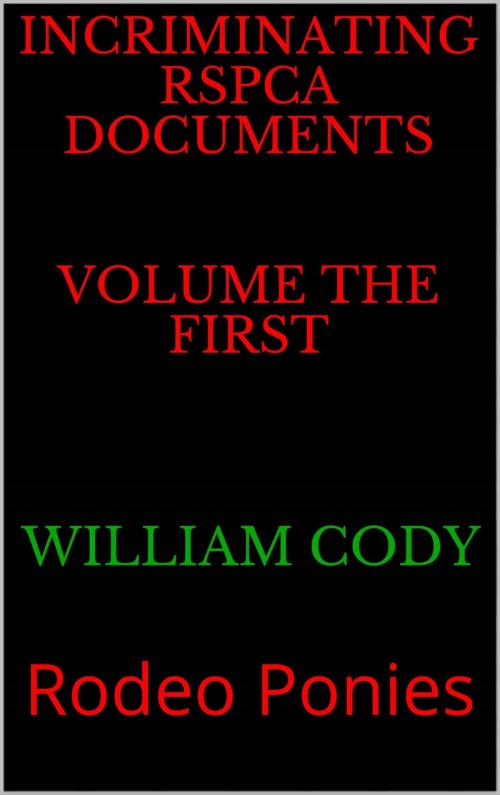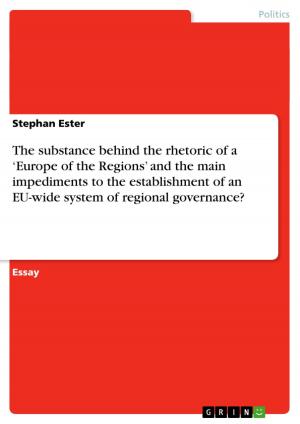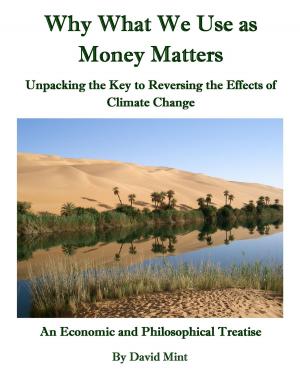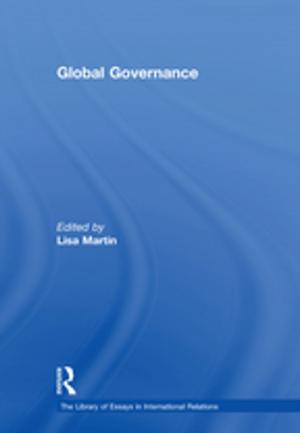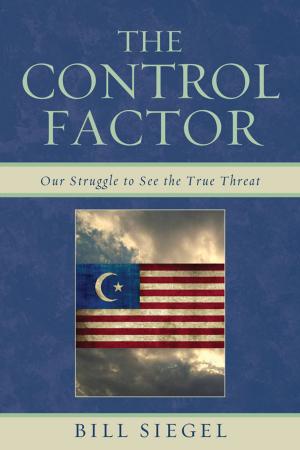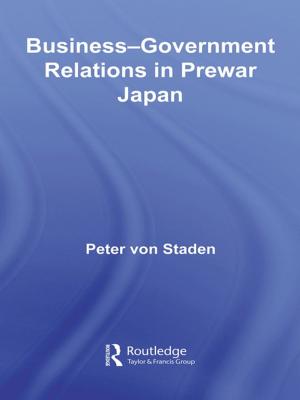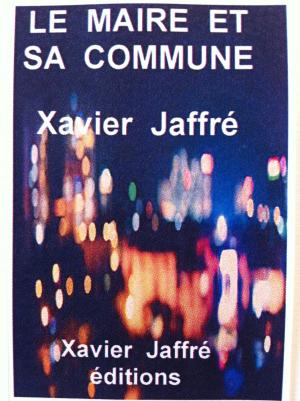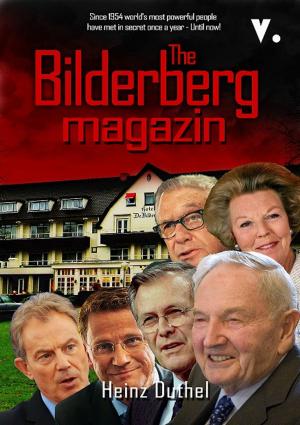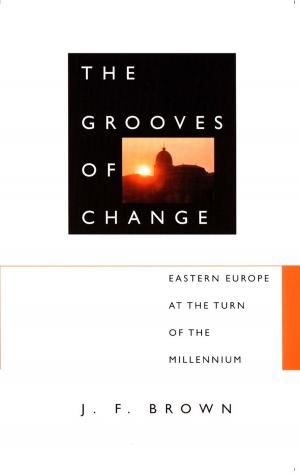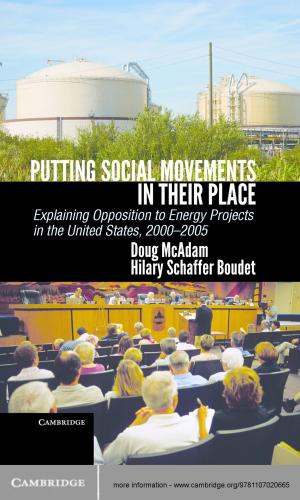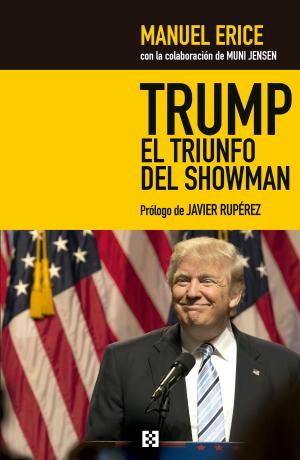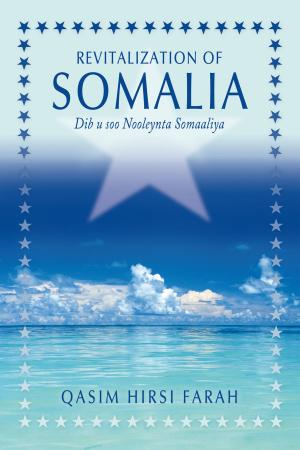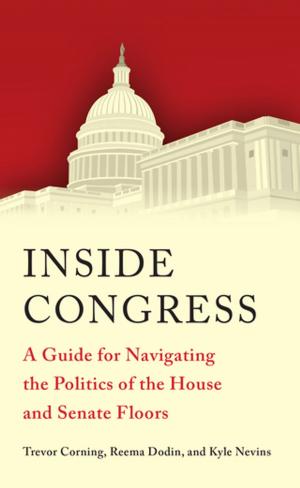| Author: | Nigel Thomas | ISBN: | 1230002177984 |
| Publisher: | Nigel Robert Thomas | Publication: | January 4, 2018 |
| Imprint: | Language: | English |
| Author: | Nigel Thomas |
| ISBN: | 1230002177984 |
| Publisher: | Nigel Robert Thomas |
| Publication: | January 4, 2018 |
| Imprint: | |
| Language: | English |
Around three decades ago, I attended West Country rodeos, which were held in the months of July and August, in the capacity of an RSPCA Inspector. I had acquired a love of horses in my youth, and had spent all available free time at my local riding school. Therefore, this proclivity towards horses, made me an eager candidate for a position in the Society. I was accepted as an RSPCA Inspector in the year 1979. During my seventeen years employment with said Society, I excelled particularly with equine welfare in four distinct spheres, namely: 1. Rodeos. 2. Live equine export campaign. 3. Lectures on equine dentition and osteology. 4. The instigation of a record number of equine court cases, with one particular horse investigation galvanizing a police murder inquiry. Volume 01, covers the whole spectrum of the rodeo campaign, and is unique in the sense that all the facts debated within its covers, are based of authentic RSPCA documents. I have employed this method as the most efficacious way to manifest the truth of what really happened during the rodeo campaign. At this point, I must emphasize that all of the persons mentioned in this satiric treatise are given fictitious names, including myself. I have taken the precaution of using pseudonyms, especially for RSPCA personnel, considering the nature of this work. Most of the names of people in newspaper articles have not been altered unless I have deemed it prudent to do so. Inspector William Cody (myself), attended rodeo events in the West Country, and quickly perceived that these events were inherently cruel, insofar, that the moorland ponies were being caused acute distress. Cody, after much deliberation, decided that enough was enough, and resolved to work towards the demise of such events. The campaign was officially started with a large article appearing in the Western Morning News, newspaper, which has been transcribed verbatim, like all the other documents pertaining to the rodeo campaign. However, Cody's RSPCA branch Chairman had been implicated in the rodeo event by accepting monies from the proceeds of the rodeo event, because he was also treasurer of the South East Cornwall Conservative Association, which benefited financially from rodeos. This scenario led to the RSPCA Chairman opposing his Inspector in the local papers and TV Regional news, and as a consequence a political furor broke out in the branch. This situation caused great interest in the media, and in an effort to stop such an uproar, the Society officially disciplined Inspector Cody. The RSPCA in the form of Chief Superintendent James Buchanan, instructed Cody to cease all letter writing in respect of rodeos, and issued a written instruction that henceforth the campaign would be run by Chief Inspector Sancho Panza, whose knowledge of horses was extremely minute. This was a ruse on the part of the Society to suppress the campaign, which up until that point had come nigh to stopping rodeos, but without more strenuous effort to combat this wild west parody, the rodeo event would inevitably start up again. Cody sat dejected watching all the progress that he had wrought being whittled away by his Chief's inaction. To go against his superiors and take an active part in the campaign again would spell the end of his career. Cody made up his mind to propel the campaign to success by working surreptitiously, and his first job was to prove that rodeos could be stopped under the Riding Establishments Acts 1964 and 1970, because some months previously, the RSPCA had refuted Cody's assertion that Rodeos were relevant to the aforementioned Acts. Cody secretly employed two solicitors to look into the matter, who both confirmed that rodeos should be licensed under the R/E Acts, and sent letters to the fifteen local authorities in Devon and Cornwall. Thirteen out of fifteen confirmed that rodeos should be licensed and would not be likely to receive one. The RSPCA rejected all this evidence.
Around three decades ago, I attended West Country rodeos, which were held in the months of July and August, in the capacity of an RSPCA Inspector. I had acquired a love of horses in my youth, and had spent all available free time at my local riding school. Therefore, this proclivity towards horses, made me an eager candidate for a position in the Society. I was accepted as an RSPCA Inspector in the year 1979. During my seventeen years employment with said Society, I excelled particularly with equine welfare in four distinct spheres, namely: 1. Rodeos. 2. Live equine export campaign. 3. Lectures on equine dentition and osteology. 4. The instigation of a record number of equine court cases, with one particular horse investigation galvanizing a police murder inquiry. Volume 01, covers the whole spectrum of the rodeo campaign, and is unique in the sense that all the facts debated within its covers, are based of authentic RSPCA documents. I have employed this method as the most efficacious way to manifest the truth of what really happened during the rodeo campaign. At this point, I must emphasize that all of the persons mentioned in this satiric treatise are given fictitious names, including myself. I have taken the precaution of using pseudonyms, especially for RSPCA personnel, considering the nature of this work. Most of the names of people in newspaper articles have not been altered unless I have deemed it prudent to do so. Inspector William Cody (myself), attended rodeo events in the West Country, and quickly perceived that these events were inherently cruel, insofar, that the moorland ponies were being caused acute distress. Cody, after much deliberation, decided that enough was enough, and resolved to work towards the demise of such events. The campaign was officially started with a large article appearing in the Western Morning News, newspaper, which has been transcribed verbatim, like all the other documents pertaining to the rodeo campaign. However, Cody's RSPCA branch Chairman had been implicated in the rodeo event by accepting monies from the proceeds of the rodeo event, because he was also treasurer of the South East Cornwall Conservative Association, which benefited financially from rodeos. This scenario led to the RSPCA Chairman opposing his Inspector in the local papers and TV Regional news, and as a consequence a political furor broke out in the branch. This situation caused great interest in the media, and in an effort to stop such an uproar, the Society officially disciplined Inspector Cody. The RSPCA in the form of Chief Superintendent James Buchanan, instructed Cody to cease all letter writing in respect of rodeos, and issued a written instruction that henceforth the campaign would be run by Chief Inspector Sancho Panza, whose knowledge of horses was extremely minute. This was a ruse on the part of the Society to suppress the campaign, which up until that point had come nigh to stopping rodeos, but without more strenuous effort to combat this wild west parody, the rodeo event would inevitably start up again. Cody sat dejected watching all the progress that he had wrought being whittled away by his Chief's inaction. To go against his superiors and take an active part in the campaign again would spell the end of his career. Cody made up his mind to propel the campaign to success by working surreptitiously, and his first job was to prove that rodeos could be stopped under the Riding Establishments Acts 1964 and 1970, because some months previously, the RSPCA had refuted Cody's assertion that Rodeos were relevant to the aforementioned Acts. Cody secretly employed two solicitors to look into the matter, who both confirmed that rodeos should be licensed under the R/E Acts, and sent letters to the fifteen local authorities in Devon and Cornwall. Thirteen out of fifteen confirmed that rodeos should be licensed and would not be likely to receive one. The RSPCA rejected all this evidence.
